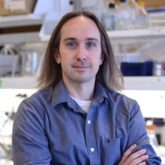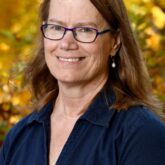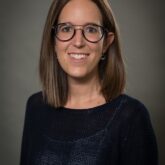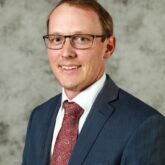Finding, Applying to, and Negotiating Your First Faculty Position
New Investigator Bootcamp Series
Join us for the first webinar of SSR’s New Investigator Bootcamp series, titled “Finding, Applying to, and Negotiating Your First Faculty Position”. This session is tailored toward future investigators seeking their first independent positions and features an expert panel, including Dr. Farners Amargant i Riera, Dr. Andrew Modzelewski, Dr. Ky Pohler, Dr. Joanie Jorgensen, and Dr. Carmen Williams. Moderator and audience questions will be answered on topics such as:
How Many Applications to Send?
- Real-world examples and strategies for determining the optimal number of applications.
Self-Evaluation:
- Identifying and tailoring your strengths and selling points to match the place of application.
Choosing Your Recommenders:
- Who should write your recommendation letters and how to make the right choice.
Interview Preparation:
- Tips for preparing for interviews and tailoring your presentation to the specific place of application.
Preparing for the 15-Minute Zoom Pre-Interview (Pre-Screen):
- How to make a strong first impression in a brief, virtual interview.
Managing Application and Interview Stress:
- Techniques for staying calm and focused throughout the application and interview process.
Comparing Hiring Processes:
- Key differences in hiring processes between academia and government positions (e.g., NIH).
Negotiation Strategies:
- How to negotiate salary, space, and equipment, and how to bring up critical needs during negotiations.
KEYNOTE AND PLENARY SPEAKERS

Andrew Modzelewski
Andrew Modzelewski PhD is an assistant professor in the department of Biomedical Sciences (BMS) at the University of Pennsylvania School of Veterinary Medicine. Andrew took a mostly academic path with some industry early on, a PhD at Cornell, a postdoc position at UC Berkeley and finally opening his own lab in 2022. The “ModzLab” studies the developmental role of retrotransposon in the early embryo and during reproduction where reactivation is regulated and essential. The lab plans to extend this knowledge to instances of epigenetic breakdown observed in aging, disease, and cancer, where unintentional retrotransposon reactivation events frequently occur.

Carmen Williams, MD, PhD
Carmen Williams, MD, PhD, is a Senior Investigator in the Reproductive & Developmental Biology Laboratory at the National Institute for Environmental Health Sciences. She trained and practiced clinically as an Ob/Gyn and Reproductive Endocrinology & Infertility physician scientist at the University of Pennsylvania. She then switched her career path away from the clinic to ask basic science questions about the mechanisms underlying the establishment of pregnancy. Her lab focuses on calcium signaling during egg activation and how those signals impact offspring health.

Farners Amargant i Riera, PhD
Dr. Amargant i Riera completed her B.S. in Biochemistry at the Universitat Autònoma de Barcelona. In 2018, she earned her Ph.D. under the supervision of Dr. Isabelle Vernos (CRG, Barcelona) and Dr. Rita Vassena (Clínica Eugin). Her doctoral research focused on developing new tools to improve gamete selection during in vitro fertilization (IVF) procedures. Following this, she joined Dr. Francesca Duncan’s lab at Northwestern University in Chicago, where she investigated the mechanisms of ovarian aging. In October 2023, Farners established her own lab at the Washington University School of Medicine in St. Louis. The Amargant i Riera Lab studies oocyte-intrinsic and extrinsic factors that regulate oocyte quality, with a particular focus on how ovarian biomechanics modulates folliculogenesis and oocyte quality.

Joan Jorgensen, DVM, PhD
Joanie Jorgensen, DVM, PhD is a professor in the Department of Comparative Biosciences in the School of Veterinary Medicine at the University of Wisconsin-Madison. Her career journey has had many twists and turns: Joanie is a board certified (ACVIM) Equine Internist who moonlighted at a Thoroughbred racetrack practice while she completed her PhD at Case Western Reserve University in Cleveland, OH. She has since worked her way through the academic ranks at the University of Illinois Urbana Champaign and landed at UW-Madison. The Jorgensen Lab focuses on cell-cell and microenvironment impacts on fetal ovary and testis development. In the ovary, the lab studies molecular and cellular events resulting in primordial follicle formation and establishment of the ovarian reserve. In the testis, they investigate local events that regulate the critical timing of fetal Leydig cell activity, including androgen production and the masculinization programming window.

Ky Pohler, PhD
Dr. Ky Pohler is an Associate Professor and Chair of the Pregnancy and Developmental Programming Area of Excellence in the Department of Animal Science. He grew up in Shiner, TX and received a B.S. in Animal Science from Texas A&M University. He then received a M.S. and Ph.D. from the University of Missouri. Prior to returning to Texas A&M, Dr. Pohler was on faculty at the University of Tennessee in the Department of Animal Science. Dr. Pohler’s research interest focus on understanding the physiological and molecular mechanisms that control reproductive efficiency in cattle. More specifically his lab is interested in the mechanisms that lead to embryonic and fetal mortality in cattle and development of management strategies to overcome these losses.

